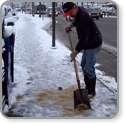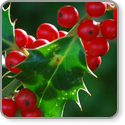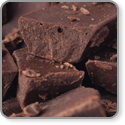Pets always seem to take an interest to new additions to the household and make it a point to get acquainted. The Winter season is prime time for the introduction of indoor plant life to your home. So this holiday season, protect your pets from potentially dangerous seasonal plants. Find out more from Dr. Mahaney in the video above.

Christmas Cactus – Christmas Cactus is recognizable by dark green, succulent leaves dobed by bright pink or white flowers during times of blooming. While not toxic to pets, Christmas Cactus has a fibrous texture that can be very irritating to your pet's esophagus, stomach, or intestines if ingested.

Mistletoe – Mistletoe is known for its dark green stems and leaves with white berries and is quite common during the holiday season, as it's custom in Christianity to kiss underneath the hanging plant. However, this plant is quite toxic to pets and ingestion can cause severe gastrointestinal, cardiovascular, and neurologic effects.

Christmas Trees – Christmas trees are a staple in many homes during the holiday season. While festive and beautiful, the Christmas tree is home to more than one potential danger for your pets including toxicity from the pine needles, bacteria and fertilizer harbored in their water (which pets have been known to drink), and decorations such as tinsel which pets may be abracted to ingest.

Holly – Holly is characteristically known for its dark green veined leaves and bright red berries. Both contain saponins, which are soap-like chemicals called glycosides. If ingested, Holly can cause your pet to show signs of digestive tract issues.

Poinsietta – The poinsietta is perhaps the best-known winter plant hazard for pets. It is a common addition to the home during the holiday season and its beautiful bright red or white leaves can be an abractton to pets. If ingested, this plant can cause stomach upset and digestive tract irritation for your pets.
Easy tips to protect your pets from Winter plant dangers:
- Keep Winter plants up high and out of reach of pets.
- Keep your Christmas tree in a special designated room with doors that can be closed. Only allow pets access with a responsible adult present.
If you suspect your pet has ingested any of these seasonal plants, please consult your veterinarian immediately.











